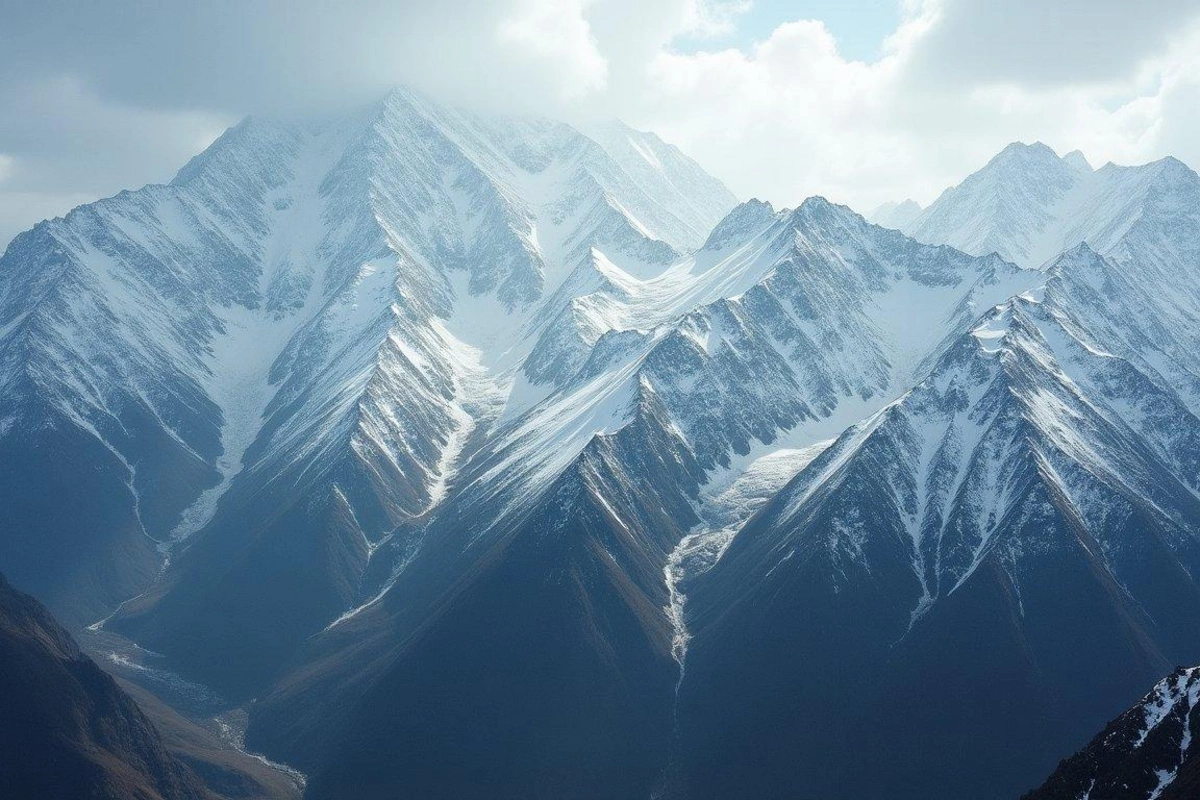Threat detected for 2 billion people

The number of snowfalls in the Hindu Kush-Himalayan mountain range in Asia has reached a critical mark - the lowest level in the past 23 years. This alarming precipitation deficit threatens the water supply of nearly 2 billion people living in the region.
The Hindu Kush-Himalayan range, majestically stretching from Afghanistan to Myanmar, is a true "water tower" of Asia. This mountain range stores the largest reserves of ice and snow outside the polar regions of the Arctic and Antarctica, providing the vital resource - fresh water - to the population of many countries on the continent.
The latest study conducted by experts from the International Centre for Integrated Mountain Development revealed an alarming picture: "a significant decrease in seasonal snowfall." The duration of snowfalls was 23.6% below normal - this is an absolute anti-record since the beginning of the 21st century.
Scientists note with concern that the negative trend of decreasing precipitation has been observed for the third consecutive year. Experts warn of serious consequences: possible reduction in river flow and increased risk of drought in the near future.
In 2025, the situation became particularly acute - snowfalls began with a significant delay, only in late January, and remained scarce throughout the winter season. Several countries in the region have already issued official drought warnings, creating a direct threat to the upcoming agricultural season. The situation is exacerbated by increasingly frequent periods of abnormal heat, which are becoming more prolonged and intense.
The study revealed a particularly dramatic situation in the basins of the Mekong and Salween rivers - two major waterways of Southeast Asia that provide water to China and Myanmar. These regions have lost about half of their snow cover. Scientists link the recurring "snow anomalies" in the Hindu Kush to growing carbon dioxide emissions and urge governments of countries dependent on the region's 12 major river basins to urgently develop more effective water resource management strategies.
According to the UN World Meteorological Organization, Asia is experiencing the strongest impact of natural disasters related to climate change. A troubling confirmation of this fact is the unprecedented retreat of glaciers: during five of the last six years, the most rapid reduction in ice cover in the history of observations has been recorded, reports Phys.org.
Similar News
The most powerful radiation storm in a quarter century has been recorded near Earth
For the first time in two solar cycles, a level S4 radiation storm has begun in the vicinity of Earth. This was reported by the Laboratory of Solar Astronomy of...




 Azərbaycanca
Azərbaycanca  По-русски
По-русски  English
English 





